Nigeria Calendar 2025 - Public & Regional Holiday: Significance and Celebrations
19:02 | 10/11/2024 Print
Nigeria, Africa’s most populous country, celebrates a wide array of public holidays and regional observances that reflect its diverse cultural, religious, and historical heritage.
With over 250 ethnic groups and two predominant religions—Christianity and Islam—Nigeria’s holidays highlight its rich tapestry of traditions and values. These holidays include national public holidays, religious festivals, and regional celebrations that vary across the country.
Learn more: Top 20 Weirdest Holidays and Festivals in the World 2025
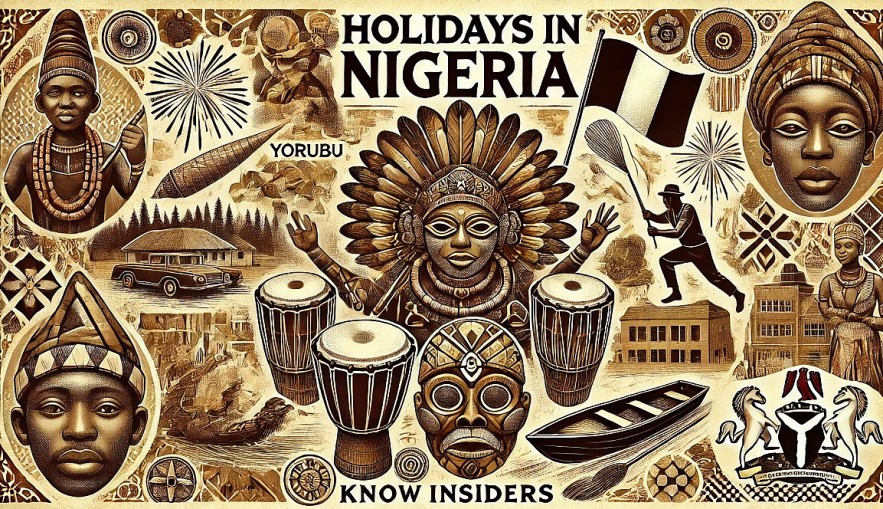 |
| Holiday in Nigeria 2025 |
List of Public Holidays in Nigeria 2025: Significance and Celebrations
Nigeria officially recognizes 13 national public holidays that are observed nationwide. On these days, schools, public offices, and most businesses are closed.
1. New Year’s Day
- Date: January 1, 2025
- Significance:
Marks the beginning of the calendar year, symbolizing renewal and hope for the future.
- Celebrations:
- Nationwide church services and prayers for blessings in the new year.
- Fireworks displays and celebratory feasts.
- Traditional drumming and dance performances in rural areas.
2. Good Friday
- Date: April 18, 2025
- Significance:
Observed by Christians to commemorate the crucifixion of Jesus Christ.
- Celebrations:
- Passion plays reenacting the events leading to Jesus’ crucifixion.
- Quiet reflection and fasting in Christian households.
3. Easter Monday
- Date: April 21, 2025
- Significance:
Celebrates the resurrection of Jesus Christ and serves as a day of rest and community bonding.
- Celebrations:
- Outdoor picnics, family reunions, and church-sponsored activities.
4. Worker’s Day
- Date: May 1, 2025
- Significance:
Highlights the contributions of Nigerian workers and their role in national development.
- Celebrations:
- Labor union marches and rallies.
- Speeches on workers’ rights and welfare.
5. Democracy Day
- Date: June 12, 2025
- Significance:
Commemorates Nigeria’s transition to democratic governance and celebrates its democratic journey.
- Celebrations:
- Public parades, political speeches, and exhibitions.
- Panel discussions on Nigeria’s democratic progress.
6. Eid al-Fitr (Sallah)
- Date: April 9–10, 2025 (Depending on lunar sighting)
- Significance:
Marks the end of Ramadan, the holy month of fasting.
- Celebrations:
- Morning prayers in mosques and prayer grounds.
- Distribution of food and gifts to the less fortunate.
- Communal feasts and cultural performances.
7. Eid al-Adha (Sallah)
- Date: June 16–17, 2025 (Depending on lunar sighting)
- Significance:
Commemorates Prophet Ibrahim’s willingness to sacrifice his son as an act of obedience to God.
- Celebrations:
- Sacrificial rituals involving goats, sheep, or cows.
- Sharing meat with family, friends, and the needy.
8. Independence Day
- Date: October 1, 2025
- Significance:
Marks Nigeria’s independence from British rule in 1960.
- Celebrations:
- Flag-raising ceremonies and cultural displays in major cities.
- Military parades and fireworks.
9. Christmas Day
- Date: December 25, 2025
- Significance:
Celebrates the birth of Jesus Christ, a central figure in Christianity.
- Celebrations:
- Carol singing, midnight church services, and nativity plays.
- Community outreach programs for the less privileged.
10. Boxing Day
- Date: December 26, 2025
- Significance:
Traditionally a day to give gifts to the needy and spend time with extended family.
- Celebrations:
- Charity events and visits to orphanages.
- Beach outings and communal games.
Learn more: Top 20 Most Popular Holidays and Festivals Around the World in 2025
Regional and Lesser-Known Observances in Nigeria 2025
1. Yoruba Festivals (Egungun and Osun-Osogbo)
- Significance:
- Egungun honors ancestral spirits, while Osun-Osogbo celebrates the Osun River goddess.
- Observed In: South-Western Nigeria.
- Celebrations:
- Masquerade parades, offerings to deities, and traditional music.
2. New Yam Festival
- Significance:
Celebrates the beginning of the yam harvest season, symbolizing abundance and gratitude.
- Observed In: South-Eastern Nigeria (Igbo communities).
- Celebrations:
- Ceremonial yam eating by community leaders.
- Traditional dances, wrestling competitions, and feasts.
3. Argungu Fishing Festival
- Significance:
Promotes cultural heritage and marks the end of the farming season.
- Observed In: Kebbi State.
- Celebrations:
- Fishing competitions, boat races, and cultural performances.
4. Eyo Festival
- Significance:
Honors Lagos’ traditional rulers and celebrates the city’s cultural heritage.
- Observed In: Lagos.
- Celebrations:
- Parades with Eyo masqueraders wearing white robes and wide-brimmed hats.
- Drumming and storytelling.
5. Calabar Carnival
- Significance:
Known as "Africa’s Biggest Street Party," it promotes tourism and cultural diversity.
- Observed In: Cross River State.
- Celebrations:
- Colorful floats, traditional dances, and international music performances.
FAQs
1. How many public holidays are there in Nigeria?
Nigeria observes 13 national public holidays, including religious and secular celebrations.
2. Are all public holidays observed nationwide?
Yes, all public holidays are observed nationwide, but regional celebrations like the Argungu Festival and New Yam Festival are specific to certain communities.
3. What is unique about Nigeria’s Independence Day?
Independence Day on October 1 is marked by parades, cultural displays, and exhibitions celebrating Nigeria’s history and unity.
4. How are Eid al-Fitr and Eid al-Adha celebrated in Nigeria?
Both Islamic holidays are marked by prayers, feasting, and acts of charity. Families also gather to share meals and gifts.
5. Which is Nigeria’s largest cultural festival?
The Calabar Carnival in December is Nigeria’s largest cultural festival, featuring vibrant costumes, music, and performances that attract both locals and international tourists.
Conclusion
Nigeria’s public holidays and regional observances in 2025 showcase the nation’s rich cultural and religious diversity. From the solemnity of Good Friday to the vibrancy of the Calabar Carnival, these holidays are a testament to the unity in diversity that defines Nigeria. Whether through national celebrations or regional traditions, these events highlight the values of community, gratitude, and cultural pride that are deeply ingrained in Nigerian life.
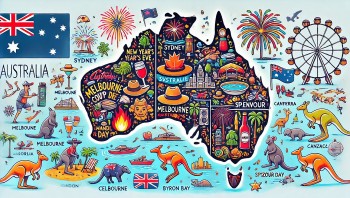 10 Biggest Holidays and Festivals in Australia 2025 10 Biggest Holidays and Festivals in Australia 2025 Here’s a look at the top 10 holidays and festivals that bring Australians together and showcase the best of this remarkable country. |
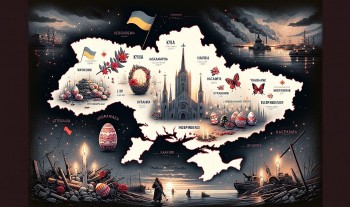 2025 Ukraine Calendar - List of Public Holidays, Observances, Celebrations and Activities 2025 Ukraine Calendar - List of Public Holidays, Observances, Celebrations and Activities This guide provides a comprehensive overview of Ukraine’s national public holidays, observances, and regional traditions in 2025, including their dates, history, significance, and potential impact ... |
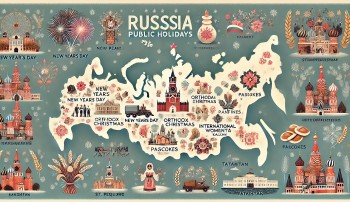 Russia Calendar 2025 - List of Public Holidays, Observances, Celebrations Russia Calendar 2025 - List of Public Holidays, Observances, Celebrations The dates, background, significance, and celebration activities of Russia's public holidays, bridge holidays, and regional or unofficial observances in 2025 are all covered in detail ... |
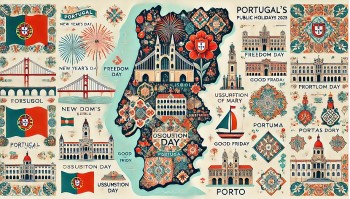 Portugal Calendar 2025 - List of Public Holidays, Significance and Activities Portugal Calendar 2025 - List of Public Holidays, Significance and Activities The dates, background, significance, and celebration activities of Portugal's national public holidays, regional holidays, and distinctive customs for 2025 are all covered in this guide. |
Jenny Lee
Article URL: https://knowinsiders.com/nigeria-calendar-2025-public-regional-holiday-significance-and-celebrations-41154.html
All rights reserved by KnowInsider
